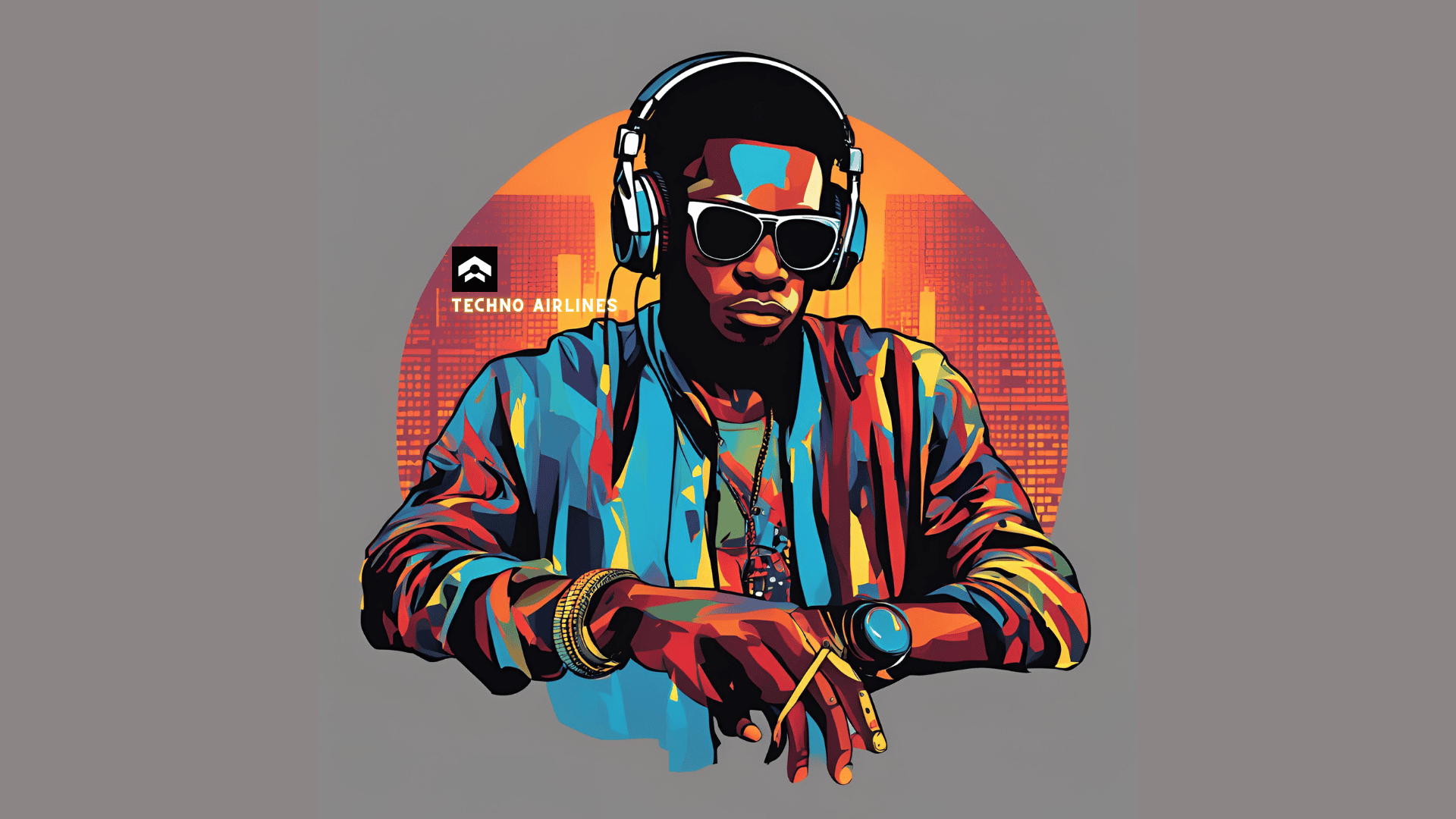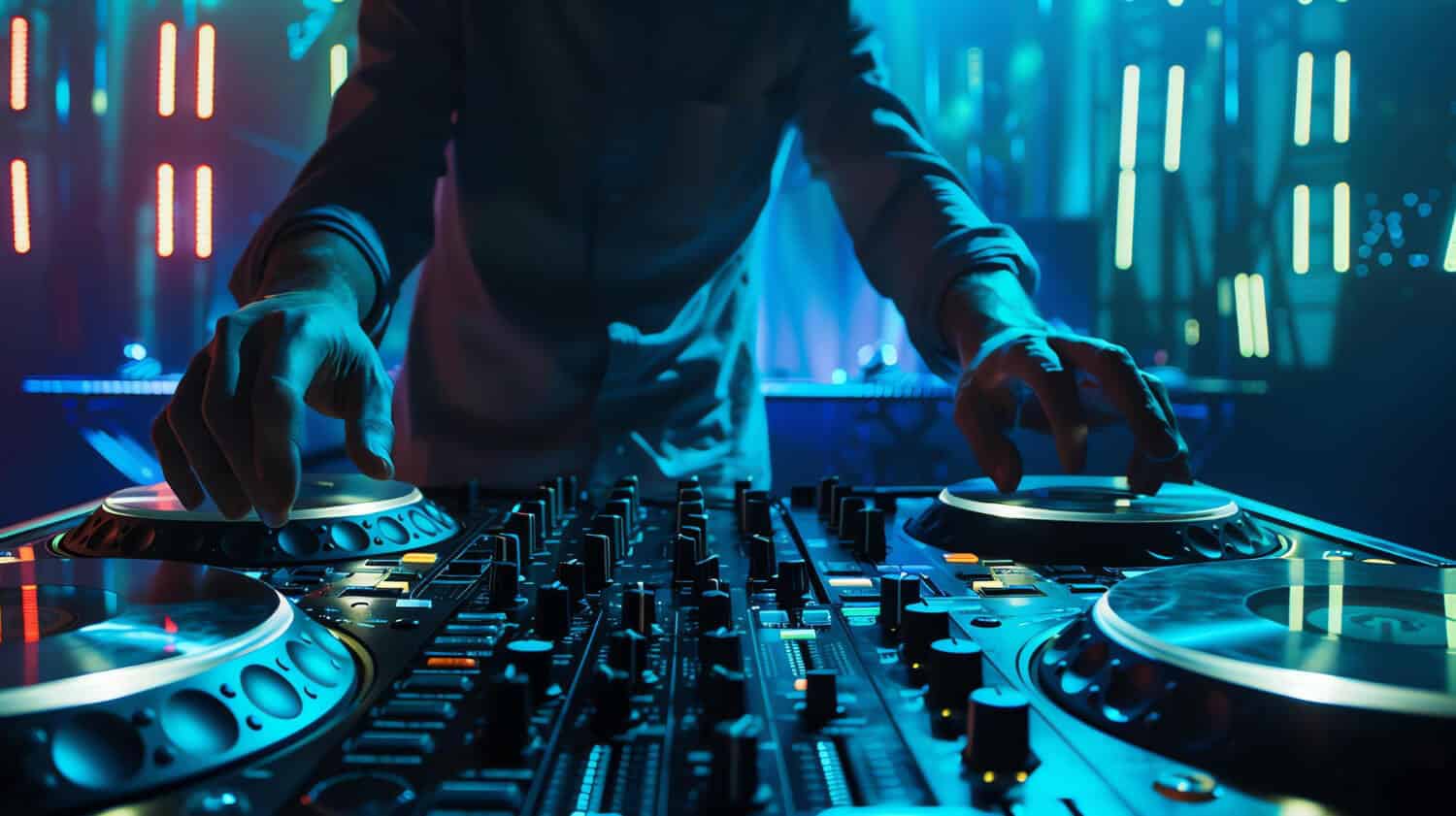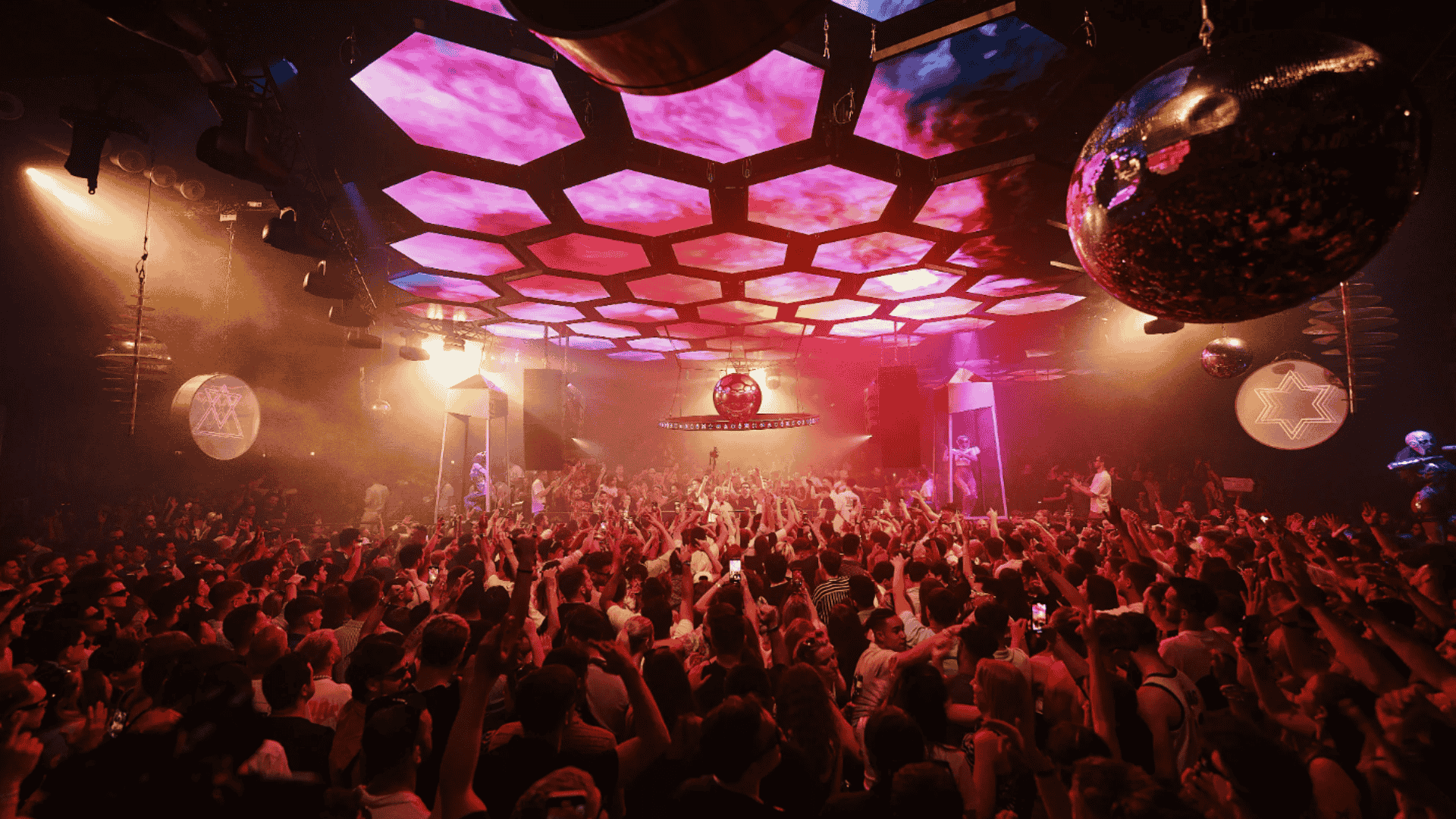How to Become a Techno DJ: a Complete Guide
Discover essential skills and insights to succeed as a techno DJ. From beatmatching to marketing, this guide covers everything to elevate your career.

Last Updated: August 9, 2024 (09.08.2024)
Where do you start to become a techno DJ? Becoming a techno DJ is a thrilling journey that involves mastering various skills, understanding the techno culture, and marketing oneself effectively. This guide will walk you through every step, providing detailed insights and real-world examples to help you succeed in the competitive world of techno DJing.
Mastering The Essentials For a Strong DJing Foundation
Before you dive into the world of techno DJing, it’s crucial to understand the basics. This includes beatmatching, phrasing, and mixing techniques.
- Beatmatching: The art of aligning the tempos of two tracks so they play in sync. This skill is essential for creating smooth transitions and maintaining the dance floor’s energy. To practice beatmatching, start with tracks that have similar BPMs and gradually work with more diverse tempos. Famous DJs like Richie Hawtin are known for their impeccable beatmatching skills, which contribute to their seamless sets.
- Phrasing: Involves understanding the structure of techno tracks, typically built around 16-bar phrases. This knowledge helps you align the musical elements of different tracks, ensuring transitions are smooth and musically coherent. Listen to artists like Carl Cox and study how they phrase their mixes to maintain a cohesive flow.
- Mixing: The process of blending techno tracks using EQs, filters, and effects. Experiment with different mixing techniques, such as using low-pass filters to blend basslines or applying reverb to create space. Watch tutorials from DJs like Nina Kraviz, who often shares her mixing techniques in interviews and on her YouTube channel.
Embracing Techno Culture Through Its History and Evolution
Techno music has a rich history that dates back to the 1980s in Detroit. Understanding its roots will give you a deeper appreciation and respect for the genre. Pioneers like Juan Atkins, Derrick May, and Kevin Saunderson, known as the “Belleville Three“, laid the foundation for techno. Their innovative use of synthesizers and drum machines created the signature sound of techno.
Attend techno festivals and events to immerse yourself in techno culture. Major festivals like Awakenings in the Netherlands, Time Warp in Germany, and Movement in Detroit offer immersive experiences with world-class techno lineups. These events not only provide inspiration but also opportunities to network with other DJs and producers.

Experiencing The Scene
Going to The Clubs
Spending time in clubs is essential for understanding the dynamics of techno events. Observe professional DJs, how they build their sets, and how they interact with the crowd. Clubs like Berghain in Berlin, known for its legendary techno nights, or Fabric in London, offer prime examples of top-tier techno DJing.
Networking is also crucial. Engage with other DJs, promoters, and club-goers to build relationships within the scene. These connections can lead to gig opportunities and collaborations. For instance, many successful DJs like Amelie Lens started by networking within their local scenes before gaining international recognition.
You can also check out the best techno clubs in various locations, cities, and near you.

Attending Festivals
Techno festivals are crucial to experiencing the scene. They offer a unique opportunity to immerse yourself in the music, connect with like-minded individuals, and observe top-tier DJs in action. Festivals like Awakenings in the Netherlands, Movement in Detroit, and Time Warp in Germany are renowned for their stellar lineups and vibrant atmospheres.
- Networking Opportunities: Festivals provide a fertile ground for networking. Engage with fellow festival-goers, DJs, and industry professionals. Building relationships at these events can lead to future collaborations and gig opportunities.
- Learning from the Best: Watching established DJs perform can be incredibly educational. Pay attention to their mixing techniques, track selection, and crowd interaction. DJs like Carl Cox, known for his impeccable mixing skills and energetic sets, often headline these festivals, offering invaluable insights into professional DJing.
- Staying Current: Festivals are also great for discovering new music and keeping up with the latest techno trends. They often feature a mix of established artists and emerging talent, providing a comprehensive view of the current techno landscape.
- Real-World Example: At the Amsterdam Dance Event (ADE), one of the world’s leading electronic music conferences and festivals, attendees can participate in panels, workshops, and networking events, in addition to experiencing top-notch performances.
- Festival Culture: Immerse yourself in the culture of these festivals. From the visual arts and stage designs to the community spirit and energy, each festival has its unique vibe. Understanding and appreciating this culture can deepen your connection to the music and inspire your artistic vision.
By attending and actively participating in techno festivals, you not only gain inspiration and knowledge but also become a part of the global techno community, fostering connections and experiences that can propel your DJ career forward.
Building Your Music Library By Listening to Techno Tracks
Your music library is your most valuable asset as a techno DJ. Spend time exploring various platforms to discover new music. Websites like Beatport and Bandcamp are excellent resources for finding the latest techno releases. Follow techno labels like Drumcode, Cocoon, and Kompakt to stay updated on new tracks.
Organize your music library meticulously. Categorize tracks by BPM, key, and mood to facilitate seamless mixing. DJs like Adam Beyer often emphasize the importance of a well-organized music library in interviews, highlighting how it helps them deliver dynamic and engaging sets.
Enhancing Your Skills Through Formal Education and Training
While self-learning is valuable, formal education can provide structured learning and accelerate your progress. Consider enrolling in reputable DJ schools like Point Blank Music School or Dubspot. These institutions offer comprehensive courses on DJing and music production, covering everything from basic techniques to advanced skills.
Online courses are also a great option. Platforms like Udemy, Coursera, and MasterClass offer courses taught by industry professionals. For instance, DJ Laidback Luke offers a MasterClass on DJing that covers everything from beatmatching to performance techniques.
Participate in workshops and masterclasses conducted by experienced DJs and producers. These sessions provide hands-on experience and valuable insights. Events like IMS Ibiza and Amsterdam Dance Event (ADE) often feature workshops by top DJs and producers, offering a wealth of knowledge and networking opportunities.

Mastering DJ Software and Learning The Tools of The Trade
Proficiency in DJ software is essential for modern DJs. Popular software includes:
- Traktor: Developed by Native Instruments, Traktor is known for its robust features and seamless integration with hardware. DJs like Richie Hawtin prefer Traktor for its flexibility and performance capabilities.
- Serato: Known for its reliability and user-friendly interface, Serato is favored by many club DJs. DJs like A-Trak often use Serato for its extensive library management features and stability.
- Rekordbox: Developed by Pioneer DJ, Rekordbox is ideal for those using Pioneer equipment. It’s known for its powerful track preparation and performance features. DJs like Carl Cox and Charlotte de Witte use Rekordbox for its compatibility with CDJs and seamless workflow.
- Ableton Live: While primarily a DAW, Ableton Live is used by many DJs for its powerful live performance capabilities. DJs like Sasha and Deadmau5 use Ableton Live to create complex live sets and incorporate live elements.
Defining Your DJing Style and Choosing Your Unique Character
Decide on the style of DJing that resonates with you and aligns with your artistic vision.
- Mixing DJs: They focus on seamlessly blending tracks to create continuous sets. This style emphasizes smooth transitions and maintaining the energy on the dance floor. DJs like Dixon and Tale of Us are known for their impeccable mixing skills and ability to create mesmerizing journeys through their sets.
- Remixing DJs: They incorporate live remixing and mashups to create unique versions of tracks. This style allows for more creativity and personalization in sets. DJs like The Martinez Brothers and Marco Carola often remix tracks live, adding their signature touch to each set.
- Turntablism: It involves using turntables and vinyl to perform techniques like scratching and beat juggling. This style requires a high level of technical skill and precision. DJs like Jeff Mills and Carl Cox are renowned for their turntablism skills, often incorporating vinyl into their sets to showcase their technical prowess.
- Hybrid DJs: They combine DJing with live elements, such as playing instruments or using a drum machine. This style allows for more dynamic and engaging performances. DJs like KiNK and Recondite often incorporate live synths and drum machines into their sets, creating a unique and immersive experience for the audience.

Becoming a Producer and Creating Your Own Music
To stand out in the competitive DJ scene, producing your own tracks is crucial. This involves investing in hardware and software for music production.
- Synthesizers: Invest in hardware or software synthesizers to create unique sounds. Popular hardware synths include the Moog Sub 37 and Roland TB-303, while software options include Serum and Massive. Producing your own tracks allows you to develop a signature sound that sets you apart from other DJs.
- Digital Audio Workstations (DAWs): Learn to use DAWs like Ableton Live, Logic Pro, or FL Studio for music production. Each DAW has its strengths, so choose one that fits your workflow and style. Ableton Live, for example, is favored by many techno producers for its powerful automation and live performance features.
- Plugins: Use plugins for effects, virtual instruments, and sound design. Popular plugins include FabFilter for effects, Omnisphere for virtual instruments, and Soundtoys for creative sound design. These tools allow you to enhance your productions and add unique elements to your tracks.
- Equipment: Set up a home studio with essentials like decks, mixers, audio interfaces, and monitors. Brands like Pioneer DJ, Allen & Heath, and KRK Systems offer high-quality equipment for DJs and producers. Investing in quality equipment ensures that your productions sound professional and polished.
Also Read: Top 5 Techno Music Gear of 2024.

Marketing Yourself as a DJ
Building Your Brand
Marketing is key to gaining visibility and building a fanbase. Develop a strong personal brand that reflects your style and vision.
Social Media
Use platforms like Instagram, Facebook, and Twitter to engage with fans and promote your work. Share behind-the-scenes content, upcoming gigs, and new releases. DJs like Charlotte de Witte and Amelie Lens are active on social media, regularly engaging with their followers and sharing updates.
Music Platforms
Upload your techno mixes and techno tracks to SoundCloud, Mixcloud, and YouTube to reach a wider audience. These platforms are great for showcasing your work and attracting new fans. Many successful DJs, like Adam Beyer, have built large followings on these platforms by consistently uploading high-quality content.
Manager
Consider hiring a manager to help with bookings, promotions, and career planning. A good manager can handle the business side of things, allowing you to focus on your music. DJs like Carl Cox and Richie Hawtin have managers who help them navigate their careers and maximize opportunities.

Record Labels
Submit your tracks to techno labels for potential releases. Getting signed to a reputable label can significantly boost your credibility and exposure. Labels like Drumcode, Cocoon, and Afterlife are known for discovering and promoting new talent in the techno scene.

Competing and Showcasing Your Talent in Competitions
Competitions are excellent opportunities to gain recognition and experience.
- Local Contests: Participate in local DJ competitions to build confidence and get feedback. These contests are great for gaining experience and improving your skills. Many successful DJs, like Nina Kraviz, started by competing in local contests before making it big.
- Online Competitions: Platforms like Mixcloud and Beatport often host DJ contests. These competitions provide a global platform to showcase your talent and reach a wider audience. Winning or even participating in these contests can boost your profile and open doors to new opportunities.
- International Competitions: Participating in international DJ competitions can significantly enhance your profile and open doors to new opportunities. Events like the DMC World DJ Championships and the Red Bull 3Style competition are prestigious platforms that attract top talent from around the globe. Winning or placing in these competitions can boost your credibility and provide exposure to a wider audience.
- Networking Opportunities: These competitions also offer valuable networking opportunities. You’ll meet other DJs, producers, and industry professionals who can provide support, advice, and collaboration opportunities. Networking at events like the International Music Summit (IMS) or Amsterdam Dance Event (ADE) can lead to booking opportunities and collaborations with other artists.
A real-world example is DJ Carl Cox, a legendary figure in the techno scene. He started his career by participating in various DJ competitions. His success in these contests helped him gain recognition and paved the way for his illustrious career.
Performing Live
Surely, this part of the process is the place everyone dreams of reaching. However, rather than focusing on what needs to be done here, it’s more about where someone who aspires to be a techno music DJ should direct themselves on their path of development.
Booking Gigs
Once you’ve practiced your skills and built a solid foundation, it’s time to start booking gigs. Perform at local clubs, bars, and parties to gain experience and build a following. With a well-crafted press kit that includes your biography, photos, and sample mixes, reach out to club promoters and event organizers.
Residencies
Securing a residency at a club can be a significant milestone in your career. Residencies provide a steady platform to showcase your skills, experiment with new tracks, and build a loyal fan base. Clubs like Berghain in Berlin or Fabric in London often feature resident DJs who become integral parts of the club’s identity. Successful residencies can lead to increased recognition and more booking opportunities. Start out small and build your way up.
Guest Sets
Performing as a guest DJ at various clubs and events allows you to reach new audiences and expand your network. Ensure you prepare well for each gig, understanding the venue’s vibe and the crowd’s preferences. DJs like Charlotte de Witte often play guest sets at renowned clubs worldwide, continually growing their fan base and influence.
Recording and Sharing Your Sets
Creating Mixes
Recording your DJ sets and sharing them online is essential for building your online presence and attracting new fans. Upload your mixes to platforms like SoundCloud, Mixcloud, and YouTube. High-quality recordings with professional cover art and detailed tracklists can enhance your online profile.
- Live Streaming: Consider live streaming your sets on platforms like YouTube, Twitch, Kick or Instagram Live. This allows you to reach a global audience and interact with fans in real-time. DJs like Seth Troxler have successfully used live streaming to engage with their audience and maintain their presence during the pandemic.
Building a Fan Base
Engage with your audience regularly through social media. Respond to comments, share behind-the-scenes content, and update your fans on upcoming gigs and releases. Building a loyal fan base requires consistent and authentic interaction.
- E-mail Newsletters: Use email newsletters to keep your fans informed about your latest news, gigs, and releases. Services like Mailchimp make it easy to manage and grow your mailing list.
Reading The Crowd
A great DJ knows how to read the crowd and adjust the set accordingly. Pay attention to the audience’s energy and reactions. Start with tracks that build momentum and gradually introduce more intense beats. Be prepared to pivot if a particular track isn’t resonating with the crowd.
- Engagement: Interact with the audience through gestures and eye contact. Creating a connection with the crowd can elevate the energy of your set and make the experience memorable for everyone.
Collaborating and Networking
Working With Other Artists
Collaboration is a powerful tool for growth and creativity. Work with other DJs and producers to create new tracks, remixes, or back-to-back sets. Collaborations can introduce you to new audiences and provide fresh perspectives on your music. For example, the collaboration between Dubfire and Sharam as Deep Dish led to significant success, including a Grammy Award.
Networking Events
Attend music conferences, workshops, and networking events to meet industry professionals and like-minded artists. Events like the Winter Music Conference (WMC) in Miami and the Sonar Festival in Barcelona offer opportunities to connect with key players in the industry.
- Panel Discussions: Participate in panel discussions and workshops to share your knowledge and learn from others. These events can provide valuable insights and inspiration.
Releasing Your Music
Finding a Record Label
Releasing music through a reputable label can significantly boost your career. Research labels that align with your style and submit your tracks for consideration. Personalize your submissions to each label, explaining why your music fits their catalog.
- Independent Releases: Alternatively, consider releasing music independently. Platforms like Bandcamp and DistroKid allow you to distribute your music directly to your fans, retaining more control and revenue.
Promoting Your Releases
Promotion is key to ensuring your releases reach a wide audience. Use social media, e-mail newsletters, and press releases to create buzz around your new techno tracks. Collaborate with influencers and music blogs to gain additional exposure.
- Music Videos: Create engaging music videos to accompany your releases. Visual content can significantly enhance your promotional efforts and attract more attention to your music.
Continual Learning and Growth
Staying Updated
The music industry is constantly evolving, and staying updated with the latest trends, technology, and techniques is essential. Follow industry news, attend workshops, and participate in online courses to keep your skills sharp and relevant.
- Innovation: Experiment with new sounds, equipment, and performance techniques. Embrace innovation and continually seek ways to improve and differentiate yourself from other DJs.
Personal Development
Personal growth is as important as professional development. Maintain a healthy work-life balance, manage stress effectively, and stay passionate about your craft. Surround yourself with supportive friends and mentors who can provide guidance and encouragement.

Conclusion and Final Thoughts on Becoming a Techno DJ
Today’s topic was about becoming a techno DJ written by Techno Airlines’ editors. Nowadays, becoming a successful techno DJ is a multifaceted journey that demands dedication, passion, and continuous learning. This comprehensive guide outlines each critical step, starting with mastering the basics and immersing yourself in the rich culture of techno music. It emphasizes the importance of formal education through courses and mastering DJ software to hone your technical skills.
Choosing your DJ persona and becoming a producer with the right equipment are essential for creating a unique sound. Marketing yourself, building a strong brand, and joining a record label are crucial for gaining recognition. Participating in competitions and seizing every performance opportunity will help you gain experience and build your reputation. Attending festivals and engaging with the community keeps you connected and inspired. By staying true to your artistic vision, embracing challenges, and enjoying the journey, you can make a lasting impact on the techno scene.
With perseverance and creativity, your dreams of becoming a successful techno DJ are within reach.





